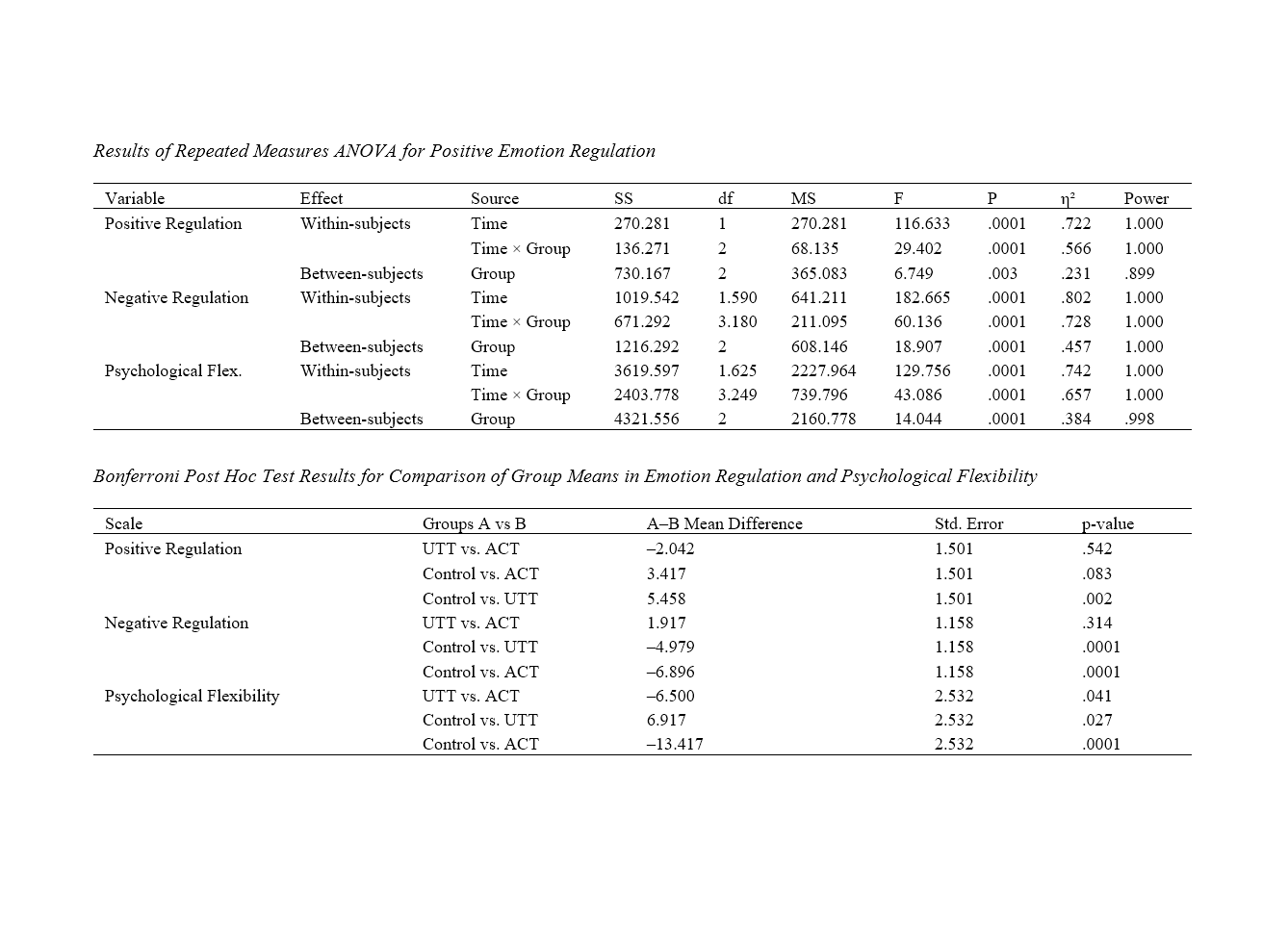Comparing the Effectiveness of Barlow’s Unified Transdiagnostic Treatment and Acceptance and Commitment Therapy on Cognitive Emotion Regulation and Psychological Flexibility in Women Bereaved by COVID-19
Keywords:
Psychological flexibility, Emotion regulation, Unified Transdiagnostic Treatment, Acceptance and Commitment Therapy, COVID-19Abstract
Downloads
References
References
Alizadeh Asli, A., & Jafar Nezhad Langroudi, Z. (2018). The Effectiveness of Schema Therapy Based on Acceptance and Mindfulness in Intimacy, Adaptation and Resiliency in Persons with Marital Conflicts in Couples of City Karaj [case report]. Alborz University Medical Journal, 7(3), 248-256. https://doi.org/10.29252/aums.7.3.248
Ashby, J. S., Noble, C., & Gnilka, P. B. (2012). Multidimensional Perfectionism, Depression, and Satisfaction With Life: Differences Among Perfectionists and Tests of a Stress‐Mediation Model. Journal of College Counseling, 15(2), 130-143. https://doi.org/10.1002/j.2161-1882.2012.00011.x
Beheshtinejad, S., Khayatan, F., & Manshaei, G. R. (2022). A Comparison between the Effectiveness of Mindfulness and Imagotherapy on Intimacy and Commitment among Couples Having Spouses with Attention Deficit Hyperactivity Disorder. https://www.sid.ir/paper/1031753/en
Burkitt, W. T. (2024). Perfectionism and Self-Esteem: The Mediating Role of Basic Psychological Needs. Psychological Reports. https://doi.org/10.1177/00332941241303402
Fatima, L. B. (2024). Literature Review: The Effects of Attachment Styles and Perfectionism on Life Satisfaction. Journal of Education Humanities and Social Sciences, 26, 760-765. https://doi.org/10.54097/pjx50g32
Ghasedi , M. (2019). The Effectiveness of Mindfulness-Based Cognitive Therapy on forgiveness, emotional regulation, and marital intimacy of women injured with infidelity. Scientific Journal of Social Psychology, 52(7), 41-50. http://sanad.iau.ir/fa/Article/924831
Ghasedi, M., Bagheri, F., & Kiamanesh, A. (2019). Comparing the effectiveness of two group therapy methods based on mindfulness and based on acceptance and commitment on forgiveness, emotion regulation and marital intimacy. Akhlāq-i zīstī, 8(29), 87-98. https://doi.org/10.22037/bioeth.v8i29.22576
Gnilka, P. B., Ashby, J. S., & Noble, C. M. (2013). Adaptive and Maladaptive Perfectionism as Mediators of Adult Attachment Styles and Depression, Hopelessness, and Life Satisfaction. Journal of Counseling & Development, 91(1), 78-86. https://doi.org/10.1002/j.1556-6676.2013.00074.x
Hamedani, K. H., Majzoobi, M. R., & Forstmeier, S. (2024). The Relationship Between Perfectionism and Marital Outcomes: A Systematic Review and Meta-Analysis. Frontiers in psychology, 15. https://doi.org/10.3389/fpsyg.2024.1456902
Karami, T., Behbodi, M., & Jahangir, P. (2023). Modeling the Effect of Approach Motives, Self-Compassion and Mindfulness on Sexual Intimacy of Married Nurses With the Mediating Role of Alexithymia. Jarac, 5(3), 78-86. https://doi.org/10.61838/kman.jarac.5.3.11
Khalifian, C. E., & Barry, R. A. (2016). Trust, Attachment, and Mindfulness Influence Intimacy and Disengagement During Newlyweds’ Discussions of Relationship Transgressions. Journal of Family Psychology, 30(5), 592-601. https://doi.org/10.1037/fam0000194
Kim, S., & Park, E.-M. (2024). The Relationship Between Perfectionism and Life Satisfaction in Young Adults: The Double Mediating Effects of the Savoring Belief and the Emotional Perception Clarity. Korean Association for Learner-Centered Curriculum and Instruction, 24(17), 227-247. https://doi.org/10.22251/jlcci.2024.24.17.227
Lin, C. Y., Potenza, M. N., Broström, A., Blycker, G. R., & Pakpour, A. H. (2019). Mindfulness-Based Cognitive Therapy for Sexuality (MBCT-S) Improves Sexual Functioning and Intimacy Among Older Women With Epilepsy: A Multicenter Randomized Controlled Trial. Seizure, 73, 64-74. https://doi.org/10.1016/j.seizure.2019.10.010
Mahmoudpour, A., Dehghanpour, S., Yoosefi, N., & Ejade, S. (2020). Predicting women's marital intimacy based on mindfulness, conflict resolution patterns, perceived social support, and social well-being. Social Psychology Research, 10(39), 102-183. http://www.socialpsychology.ir/article_120662_en.html?lang=en
Matte, M., & Lafontaine, M. F. (2012). Assessment of Romantic Perfectionism. Measurement and Evaluation in Counseling and Development, 45(2), 113-132. https://doi.org/10.1177/0748175611429303
Regas, S. (2019). Infidelity, self-differentiation, and intimacy: The mindful differentiation model of couple therapy. In Integrative couple and family therapies: Treatment models for complex clinical issues. (pp. 71-90). American Psychological Association. https://doi.org/10.1037/0000151-004
Samkhaniyani, I., Mansouri, S., Amiri Moghaddam, D. M., Shabazi, G., Qavadi, D., & Jafari, N. (2020). Effectiveness of Cognitive Therapy Based on Mindfulness on Forgiveness and Marital Intimacy in Couples.

Downloads
Additional Files
Published
Submitted
Revised
Accepted
Issue
Section
License
Copyright (c) 2025 Mansoreh Eslami (Author); Hassan khoshakhlagh (Corresponding Author); Sedigheh Rezaei Dehnavi, Mohammad Zare Neyestanak (Author)

This work is licensed under a Creative Commons Attribution-NonCommercial 4.0 International License.
















